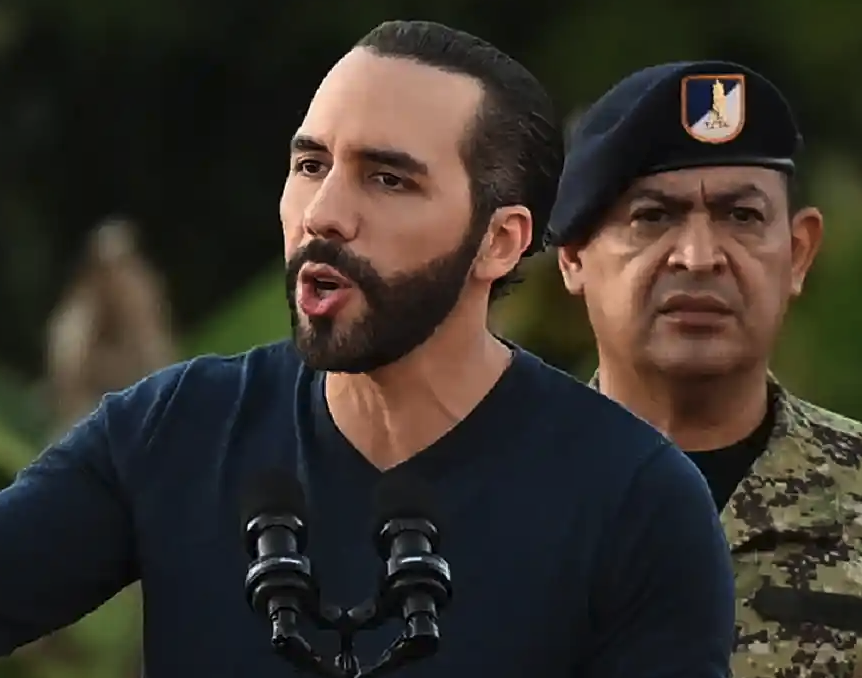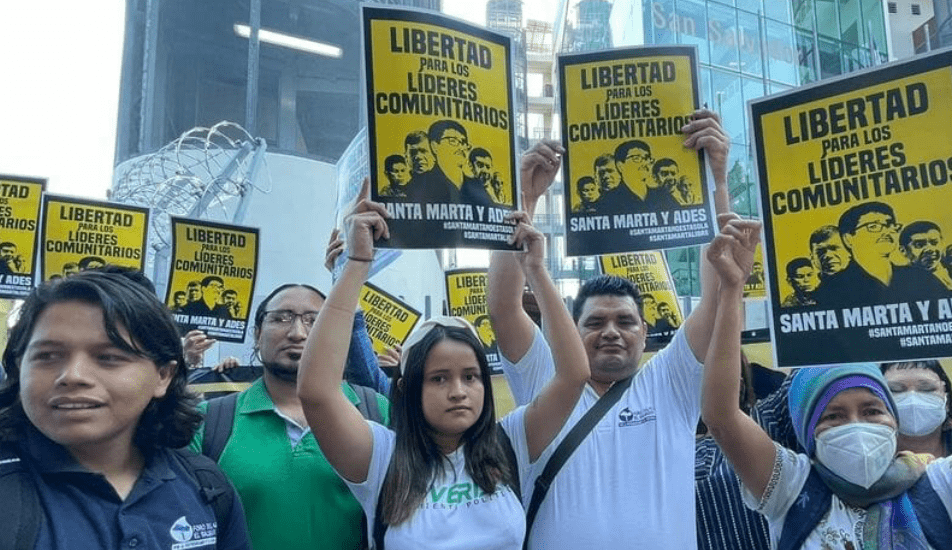STOP THE SUITS TOUR
International Investment Agreements Threaten People and the Environment from El Salvador to Canada

(Montreal/Ottawa/Toronto) In anticipation of an imminent ruling from a little-known arbitration tribunal at the World Bank that could force El Salvador to pay Canadian-Australian mining firm OceanaGold US$301 million, a Salvadoran delegation will visit Canada next week to discuss how investor-state arbitration threatens democratic decision-making, public health and the environment here and beyond our borders.
OceanaGold is suing El Salvador for an amount equivalent to 5% of its gross domestic product for not having granted it a permit to put a gold mine into operation, despite its project not having met regulatory requirements. Originally, Pacific Rim Mining launched the suit in 2009 after the first of three successive Salvadoran Presidents committed to an effective moratorium on new mining projects given concerns over potential impacts on already taxed water supplies. OceanaGold purchased Pacific Rim Mining in 2013, narrowly saving it from bankruptcy, and has stubbornly continued with the case. The International Center for the Settlement of Investment Disputes (ICSID) at the World Bank could release its decision on the suit any day.
From May 11 to 15, Yanira Cortez, Deputy Attorney for the Environment for El Salvador’s Human Rights Prosecutor’s Office and Marcos Gálvez, President of the Association for the Development of El Salvador (CRIPDES, a founding member of the National Roundtable against Metal Mining) will travel to Montreal, Ottawa-Gatineau and Toronto. They will speak publicly and meet with Members of Parliament to request support for the Salvadoran people’s struggle and warn of dangers that Canadians face through investor provisions in existing and proposed free trade agreements, such as the North American Free Trade Agreement (NAFTA), the Canada and European Union Comprehensive Economic and Trade Agreement (CETA), and the Trans Pacific Partnership (TPP).
Canadian taxpayers have already paid out tens of millions to foreign corporations and could be on the hook for tens of millions more in suits brought under NAFTA for decisions made in the public interest. In a case eerily similar to the one El Salvador faces, Lone Pine Resources is suing Canada for $250 million in response to Quebec’s decision to put a moratorium on shale gas mining, better known as fracking. This measure, broadly supported in Quebec, is premised on concern for people’s health and the environment. Calgary-based Lone Pine Resources is using a US affiliate to bring the suit and has insisted that it will continue to pursue the case unless Quebec lifts its moratorium.
The number of investor-state suits has ballooned in recent years. As of 2013, there were 169 investor-state suits being heard at ICSID, up from only 3 in 2000. About 35% were brought by oil, gas, and mining firms and nearly 50% of all 169 suits were against Latin American governments. The trend with NAFTA suits is similar. Over the last decade, the number of suits has doubled, with Canada the target in roughly 70% of cases.
While successive Canadian governments continue to promote these investor-state dispute settlement provisions (ISDS) in trade and investment agreements, governments elsewhere are rethinking this model. El Salvador has reformed its national investment law to limit foreign corporations’ access to international arbitration tribunals such as ICSID. Brazil has never signed onto any such provisions and still boasts significant foreign investment. In 2011, Australia promised not to sign any further agreements that permit access to ISDS. Indonesia and South Africa are considering withdrawing from investment agreements containing ISDS provisions or letting them expire. Others, such as Germany and France could oppose ISDS in new EU-North American agreements. Bolivia, Ecuador and Venezuela have withdrawn from the ICSID convention so that suits cannot be brought against them in that forum.
To arrange an interview, contact:
- In Montreal: Marie-Eve Marleau, Comité pour les droits humains en Amérique latine (CDHAL), marie.eve(at)cdhal.org, 514-257-8710 x334
- In Ottawa/Gatineau: Jen Moore, MiningWatch Canada, jen(at)miningwatch.ca, 613-569-3439
- In Toronto: Jim Hodgson, The United Church of Canada, jhodgson(at)united-church.ca, 416-231-5931 x4013
Background:
Three successive Salvadoran Presidents have kept a moratorium on mining in response to broad-based nationwide opposition to metallic mining. From local communities to the upper echelons of the Catholic Church, Salvadorans are worried about the negative impacts that gold mining could have on local farming communities and downstream water users in this country that largely relies on a single, already overtaxed watershed. Four community members who were outspoken against the mine have also been murdered between 2009 and 2011 in apparent connection with their activism.
The ICSID suit, taking place far beyond any democratic process or court system, aims to put a chill on important project and policy making decisions related to large-scale mining in El Salvador. In particular, a proposed legislated ban on mining has been stalled in the Salvadoran legislature for years. Meanwhile, mining-affected communities lack access to justice for the harms that they have faced. Neither are their appeals on human rights and environmental grounds considered relevant in the strictly commercial ICSID tribunal system. In response, communities are beginning to rebuild sovereignty from the ground up with municipal plebiscites to declare themselves free of mining. Three municipalities in the department of Chalatenango have so far made such decisions.
For More Information:
“Debunking Eight Falsehoods by Pacific Rim Mining/OceanaGold in El Salvador” (Available in English and Spanish)
“Mining For Profits in International Tribunals: Lessons for the Trans-Pacific Partnership” (Available in English and Spanish)
“After Decades of Struggle, Salvadoran Communities Declare Territory Free of Mining” (Available in English)
“Water at the Heart of El Salvador’s Struggle Against Neoliberalism” (Available in English and Spanish)



